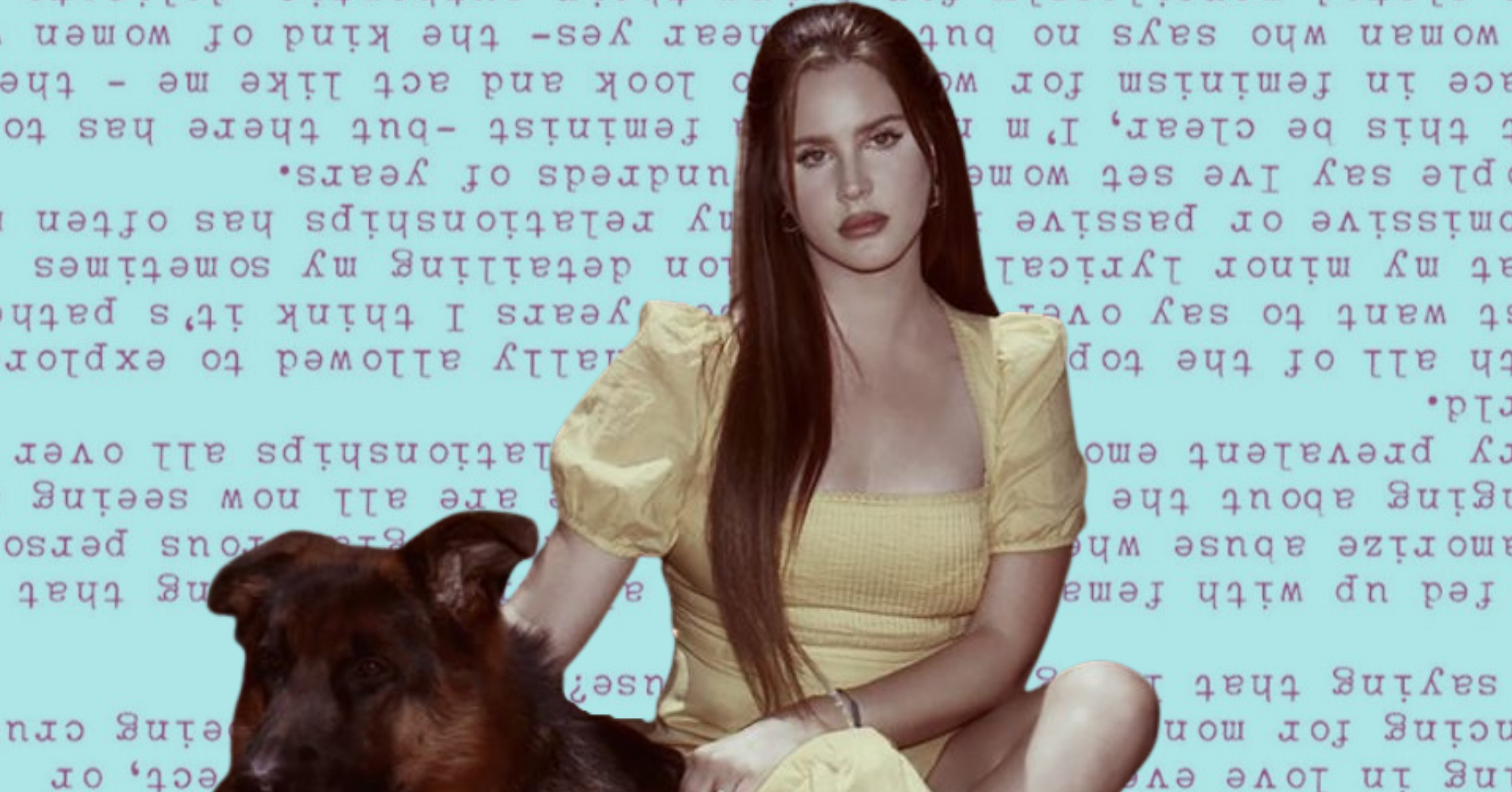Blue Banisters: Lana Del Rey’s Latest Gorgeous, Slightly Misguided Record
By Karenna Umscheid
Fresh off of the erasure of her social media accounts, poetry book readings, and plenty of controversies, Lana Del Rey returns with her second studio album of 2021, Blue Banisters, on October 22.
Lana thrives in over-romanticism; she leans into it in Blue Banisters. She sings “If this is the end/ I want a boyfriend”, almost in a caricaturization of herself.. Violets for Roses is the perfect song for the reclamation of self-love. It’s a tale of falling out of love with a man, and back in love with herself, with the city, and with the streets. For all the criticism Lana has gotten for singing soulfully about unhealthy relationships, this time she sings kindly of the afterwards: ultra-fanciful in the love for herself.
If Norman Fucking Rockwell! was a panegyric for Los Angeles, Blue Banisters seems to be only a mild background. It’s a less geographic album, almost reclining from her quintessential California landscape. She sings about the city with a little more hurt and pain, creating a story of how a town she loved suddenly turned against her.
Her lyricism only grows tiring when it seems to beckon back to her infamous “Question for the Culture.” In the post, she claims she has been “crucified” for singing about love in imperfect relationships. She makes this point while slut-shaming other popular female artists like Doja Cat, Ariana Grande, and Nicki Minaj, misogynistically contrasting their music of “wearing no clothes, fucking, cheating” with her melodies of “feeling embodied, feeling beautiful by being in love even if the relationship is not perfect.” She’s sure to state that she’s “not not a feminist” and worries there may not be a place for her, a white woman who sings melancholically about love, in the industry. She is unable to accept blame for her post, and instead, in Arcadia, she pleads about being torn down. Through her wrongdoing, Lana seems to have painted herself in a musical corner.
Technically, Blue Banisters sounds flawless. Her music is enhanced beautifully by the additional instrumentation, such as the brass section in If You Lie Down With Me. The lyricism invokes a healthier romanticism, in her external relationships and within herself. It’s gorgeous as ever. This is not Lana’s masterpiece, but it largely lives in the realm of her other great works.
It’s difficult to write about the music of such a complicated character. Her inability to take full responsibility for the ignorance and harm she put into her “Question For The Culture” was inexcusable and childish. The problematic air surrounding her has damaged her reputation, and Blue Banisters won’t serve to fix it.
And to answer Lana’s original QFTC, there was always a place for a woman like her in the industry. The lustful sad girl is emulated and listened to over and over. People relished the music of a dark and devilish diva with a fragile heart. But Lana’s constant inclination to see legitimate criticisms as personal attacks is her downfall. She sings in Arcadia of being built-up to be torn down, but that’s a complete fallacy. She didn’t get ridiculed for her SNL performance for any reason other than it being bad. And she didn’t get criticized for QFTC or her mesh mask because of any personal vendetta, but because both were wrong to do.
And now I have my own question for the culture. Is it possible for a melodramatic poet and pop star to come back after a series of public relations failures sprung by lapses of judgement and general ignorance? Blue Banisters is rather fruitless in this aspect, with no attempt for forgiveness or for apology. She beckons her music back into a sultry sense of romance, with a tinge of victimization for the issues she caused herself.
Lana Del Rey’s music will always be gorgeous, when it’s not a self-victimizing whine. Blue Banisters is a tightrope walk between the two.

